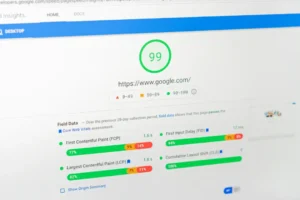在跨境电商和外贸领域,经常有老板问:“海外买家到底喜欢什么样的卖家?”这个问题看似简单,但背后却藏着一套复杂的逻辑,国际买家的选择逻辑,远比我们想象的更精妙。
2023年阿里巴巴国际站数据显示,82%的海外采购商在询盘后24小时内会淘汰第一批供应商——不是价格不够低,而是专业文件包里的某个细节暴露了”门外汉”身份。
在越南、墨西哥等新兴制造基地的挤压下,中国供应商的突围路径早已不是简单的”成本优势”。美国供应链管理专家协会(CSCMP)最新报告指出:”当基础质量达标后,买家的决策天平会向’专业度×配合度’的乘积倾斜”。这个隐形公式,正在重构全球贸易的游戏规则。
1. 价格和质量是基础,但远远不够!
对于常规产品,海外买家首先会看价格和质量。这两点是基础,但绝不是决定性因素。试想一下,如果市场上有10个卖家的价格和质量都差不多,买家会怎么选?显然,光靠“便宜”和“好用”已经无法让你脱颖而出。
价格:
海外买家并不总是追求最低价,他们更看重的是“性价比”。换句话说,你的价格是否能匹配你的服务和附加价值?如果只是一味压低价格,可能会让买家怀疑你的产品质量。
质量:
质量是底线,但不是核心竞争力。买家需要的不仅是“合格”的产品,而是“可靠”的供应商。质量稳定、批次一致,才是让买家长期合作的关键。
2. 专业度:让买家觉得“你就是专家”
当价格和质量都差不多时,专业度就成了买家选择卖家的决定性因素之一。什么是专业度?简单来说,就是让买家觉得“你懂行”“你靠谱”“你值得信赖”。
宁波某注塑模具厂在报价单嵌入3D模拟视频,直观展示模具与客户生产线的适配性,单笔订单溢价23%
如何体现专业度?
- 行业经验: 海外买家喜欢和有行业积累的卖家合作。你的公司成立多久?有没有服务过类似的客户?这些都能体现你的专业性。
- 技术能力: 如果你能提供技术指导、定制化解决方案,甚至帮助买家优化产品设计,买家会觉得你是一个“值得长期合作的伙伴”。
- 供应链管理: 你的库存管理、物流效率、交货周期是否稳定?这些细节都能体现你的专业度。
- 沟通能力: 专业度还体现在沟通上。及时回复、清晰表达、用买家的语言和文化习惯沟通,这些都能让买家觉得你“很专业”。
3. 配合度:让买家觉得“和你合作很省心”
如果说专业度是“硬实力”,那么配合度就是“软实力”。配合度决定了买家和你合作的体验感。海外买家喜欢的卖家,往往是那些“配合度高”的卖家。
如何提升配合度?
- 快速响应: 海外买家最怕的就是“石沉大海”。无论是询盘、报价还是售后问题,及时回复是基本要求。
- 灵活调整: 买家的需求可能会随时变化,比如加急订单、临时修改设计、调整交货时间等。如果你能灵活应对,买家会对你印象深刻。
- 主动解决问题: 当出现问题时,不要推诿责任,而是主动提出解决方案。买家需要的是一个能“扛事”的卖家,而不是一个只会找借口的人。
- 文化适配: 了解买家的文化背景和商业习惯,尊重他们的沟通方式和决策流程,这会让你在合作中更受欢迎。
4. 案例分析:为什么买家选择了你,而不是竞争对手?
举个例子:
A公司和B公司都生产同样的产品,价格和质量几乎一样。买家最终选择了A公司,为什么?
- 专业度: A公司提供了详细的产品手册、技术参数,甚至主动帮助买家优化了产品设计。
- 配合度: 当买家提出紧急发货需求时,A公司迅速调整了生产计划,确保按时交货。而B公司则因为“订单太多”拒绝了买家的要求。
这就是专业度和配合度的力量。买家不是在买产品,而是在买“安心”。
5. 老板必知:如何让自己的公司更受海外买家欢迎?
- 打造专业形象: 优化公司官网、产品手册、样品展示,让买家一接触就能感受到你的专业性。
- 提升沟通效率: 建立快速响应机制,确保每个询盘都能在24小时内得到回复。
- 优化供应链: 稳定的库存、高效的物流、灵活的生产调整能力,是提升配合度的关键。
- 主动服务: 不要等买家提出问题,而是主动发现问题并解决。比如提前告知可能的延误,提供替代方案等。
- 建立长期信任: 从第一次合作开始,就用专业度和配合度赢得买家的信任,为长期合作打下基础。
价格和质量是敲门砖,但真正让海外买家下单的,是你的专业度和配合度。老板们,想要在海外市场脱颖而出,就要从这两个维度入手,打造一个“让买家省心、放心、安心”的供应商形象。
海外买家不是在找“便宜货”,而是在找“靠谱的合作伙伴”。只要做到这一点,你的公司一定会成为买家的首选!









